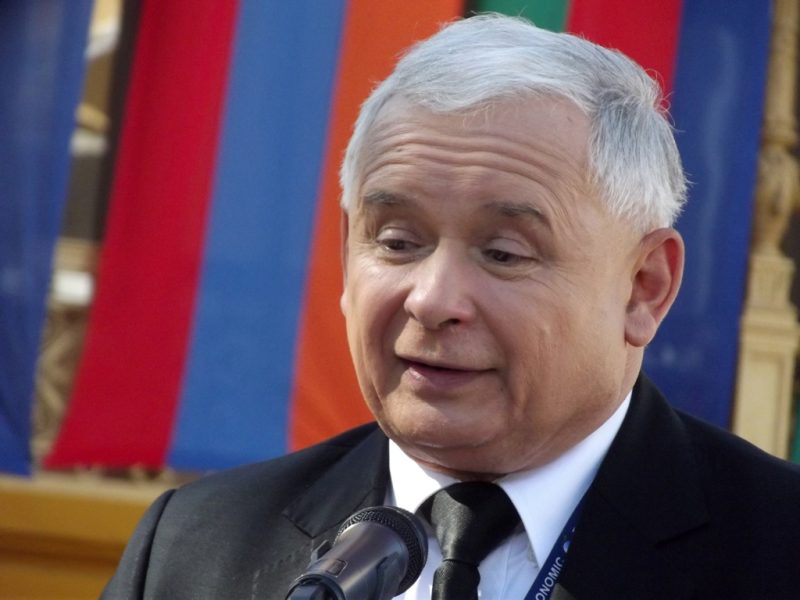With just a few days to spare before the planned parliamentary election on October 15th, a number of top military commanders, including two high-ranking generals, have resigned from the Polish military. The mass resignation is internationally viewed as a blow to the ruling far-right Law and Justice Party (PiS), which has run a bulk of its campaign platform on claiming to be a protector of the people from various outside and inside threats, politicizing the military while actively circumventing officers’ decisions in critical operations. With the polls predicting an extremely close vote, this latest development further escalates the tension in the already nervous Polish public.
Following the two generals’ resignations, the former prime minister and European Council president who currently runs as the leader of the PiS’s opposition, Donald Tusk, has revealed that at least 10 more high-ranking officers (including at least one colonel and multiple lieutenant colonels) decided to go into retirement in a press conference held Tuesday. While PiS-aligned chief of the Bureau of National Security (B.B.N.) Jacek Siewiera has already announced that the president will accept the resignations, he speaks disdainfully of the timing: “If misters general decided yesterday to submit their resignations, then the commander in chief will accept this decision,” Siewiera said. “From the point of view of the president and B.B.N., it is absolutely critical to maintain the continuity of the command and the efficiency of operations such as the evacuation [of Polish citizens] from Israel.”
If PiS wins the election, this will be both the party’s third term in power and grave news for the entirety of Europe. For the last eight years, the party’s rhetoric, under the leadership of chairman Jarosław Kaczyński, has vastly polarized the country, leading to a rise of radical far-right figures and organizations. Not only has PiS reduced the rights of women, the LGBTQ community, immigrants and refugees, it also centralized the government’s power, seizing control of the media and justice system and keeping close alliances with the Catholic church and religious lobbyists such as the Ordo Iuris organization. These actions have been criticized both internally and internationally, with most agreeing that several of these policies are unconstitutional and/or in outright violation of human rights.
Though the resignation can be taken as a positive act of protest against the PiS party, it also heightens the public’s fear of a government-led military coup if the election results are not in the army’s favour.
Over the years of PiS rule, tensions have been high between the government and the army. Current Minister of Defence and known Kaczyński loyalist Mariusz Błaszczak has repeatedly incurred the anger of the two generals who resigned, Gen. Rajmund Andrzejczak and Lt. Gen. Tomasz Piotrowski, by going behind their backs in important military matters and thus undermining the chain of command. The latest example is Błaszczak’s order of evacuation from Israel (mentioned above), which he issued, without consulting the generals, following the breakout of the currently raging conflict in Israel-Palestine. Though official reason has not yet been given for the retirement of other officers, Tusk has revealed them all to be members of the administrative, rather than combative, branches of the military, suggesting that their actions were motivated by the improper ways Kaczyński’s men have handled command. Despite the chaos such a mass resignation must have caused within the army, the government has already announced that it will continue all its operations, including the Israel evacuation, as planned.
In many ways, the Polish military is more important to the rest of the world right now than it has been since World War II. Acting as the E.U.’s easternmost border, Poland is both the route through which aid to Ukraine must flow from the West and the first barrier Russia’s forces would meet if it wished to move westward with its campaign. With the elections coming up and the PiS electorate being bombarded with Polexit rhetoric in state-controlled media, it is crucial that the international public’s eye follow the happenings in Poland closely, lest bad-faith agents try to use the military’s current weakening to tamper with the state post-election.
- Cuba Uncovers Russian Military Recruiters Trafficking Citizens To Ukraine - March 16, 2024
- Schools Set On Fire In Belgium Linked To Sex Ed Protests - December 15, 2023
- Spyware Used On Opposition Politicians Affected Election, Polish Senate Finds - November 29, 2023


